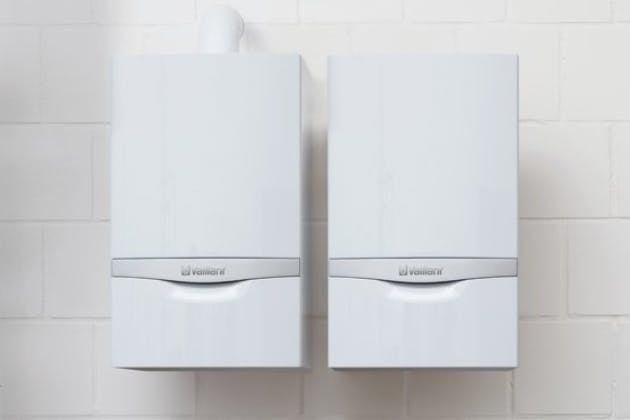If you're in the process of choosing a new boiler, you might be weighing up the differences between gas and oil boilers. Both options can effectively heat your property, but they have distinct differences in terms of efficiency, cost, and suitability. Understanding these differences can help you make an informed decision about which system is best for your needs.
For boiler servicing in York, Harrogate, Richmond, and nearby areas, give us a call today at 08001182467 or 07717574470.

Gas Boilers vs Oil Boilers
Fuel Source and Availability
One of the most obvious differences between gas and oil boilers is the fuel source. Gas boilers run on natural gas, which is delivered through a main supply. This makes them a convenient option for those living in areas with access to the gas grid. Natural gas is generally considered the more convenient fuel option because it doesn’t require storage and is delivered on demand.
Oil boilers, on the other hand, run on heating oil, which needs to be stored in a tank on your property. This means you’ll need to monitor your oil levels and arrange for deliveries when your supply runs low. Oil boilers are often used in rural areas where there is no access to the gas network, making them a viable alternative to gas heating.
Efficiency and Running Costs
When it comes to efficiency, both gas and oil boilers have made significant strides in recent years. Modern gas boilers are highly efficient, with many condensing models achieving over 90% efficiency. This means that less fuel is wasted, which can translate into lower energy bills.
Oil boilers, while also efficient, tend to have slightly higher running costs due to the fluctuating price of heating oil. Oil prices can be unpredictable and are often influenced by global market conditions, which means your energy costs could vary throughout the year. However, oil boilers can still offer good efficiency, especially when using advanced condensing models.
Environmental Impact
If reducing your environmental impact is a priority, it’s worth considering the differences between gas and oil boilers in terms of emissions. Natural gas is generally considered to be a cleaner-burning fuel compared to oil, producing fewer carbon emissions. This makes gas boilers a more environmentally friendly option for those looking to reduce their carbon footprint.
Oil boilers, while effective at heating, produce more emissions and require careful maintenance to ensure they run efficiently. Additionally, the production and transportation of oil have a higher environmental impact compared to gas.
Installation and Maintenance
Gas boilers tend to have lower installation costs than oil boilers because they don’t require an external fuel tank. Maintenance is also generally more straightforward, as gas boilers don’t require fuel deliveries or regular monitoring of fuel levels. However, both systems need annual servicing to ensure they operate safely and efficiently.
Oil boilers require a storage tank, which adds to the initial installation cost and takes up space. However, for properties without access to the gas grid, they remain a reliable and effective option.
Choosing between a gas and oil boiler depends on several factors, including your location, budget, and environmental priorities. Gas boilers offer convenience and lower emissions, while oil boilers are a strong option for rural properties without access to the gas network. Weighing up the pros and cons of each system will help you decide which is the best fit for your heating needs.
Contact Us for Boiler Installation in York, Richmond, and Harrogate
Our experienced heating engineers in Harrogate, York, Richmond, and nearby areas can help with all your boiler needs. Just give us a call today at 08001182467 or 07717574470 or use our contact form to get started.


